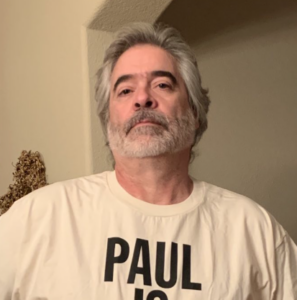The Alexa Bliss impersonation scam is a stark reminder of the lengths to which scammers will go to exploit trust and admiration. Vince Russo’s personal account further highlights the vulnerability of the elderly to such tactics
Raising awareness, educating vulnerable populations, and holding scammers accountable are crucial steps in preventing similar incidents in the future. By staying vigilant and supporting victims, we can work toward a safer and more informed society.
The wrestling world is no stranger to controversy, and the recent scam debate is yet another example of how personalities like Vince Russo and EC3 bring attention to real-world issues.
While Russo champions compassion and understanding, EC3 highlights the importance of personal responsibility.
Both perspectives are valuable, offering a nuanced understanding of a growing societal challenge.
As fans await the next chapter in WWE storylines and the return of beloved superstars like Alexa Bliss, the wrestling community’s conversations remind us of the industry’s unique ability to blend entertainment with thought-provoking discourse.

Also Read: Is WWE’s Uncle Howdy the Next Big Star? Veteran Reacts to Latest Segment (Exclusive)
Table of Contents
Vince Russo: Shocking Impersonation Scam
The world of professional wrestling has seen its fair share of drama, both inside and outside the ring.1
Recently, WWE Superstar Alexa Bliss found her name entangled in an unfortunate scam involving a significant financial loss.
This story has not only shocked fans but also led wrestling veteran Vince Russo to share a personal account of his father’s experience with scammers.
In an unsettling revelation, an elderly man in his 70s was reportedly conned out of nearly $1 million by an impersonator claiming to be Alexa Bliss. The scammer’s convincing act led the victim to make drastic financial decisions, including dipping into his granddaughter’s college savings.
Despite his son’s efforts to clarify the situation, the elderly man remained convinced of the impersonator’s identity.
Such scams are not just criminally exploitative but also deeply personal, leaving families reeling from the emotional and financial fallout.
The FIRST EPISODE of My Brand New Show on @BleavNetwork Drops at 12pm est!!!
Vince Russo’s “Before My Head Explodes!!!”
It’s FREE and you can catch it on ALL Podcasting Platforms!!!https://t.co/kq8WJyckLR pic.twitter.com/h2VuvsN1JY
— Vince Russo (@THEVinceRusso) November 22, 2024
The Role of Scammers in Exploiting Trust
The incident highlights how scammers often target vulnerable individuals, particularly the elderly. By preying on their trust and using persuasive tactics, they manipulate victims into believing elaborate lies.
Impersonating a celebrity adds another layer of deceit, as fans may feel a personal connection to public figures like Alexa Bliss.
This case serves as a reminder of the lengths to which scammers will go, exploiting both emotional and financial vulnerabilities.

Vince Russo’s Personal Experience with Scammers
In light of the Alexa Bliss impersonation story, wrestling veteran Vince Russo shared a similar experience involving his father.2
Speaking on Sportskeeda Wrestling’s The Wrestling Outlaws podcast, Russo described how his 93-year-old father fell victim to a phone scam:
“That’s sad bro, especially the elderly. Bro, my father’s been phone scammed. My father’s 93, he has been phone scammed. You know when they start, when you are old and they start fast talking you, their hands are in and out of your wallet, bro, before you even know it.”
Russo’s anecdote underscores how common scams targeting the elderly have become, with scammers employing high-pressure tactics to confuse and deceive their victims.
Why Are the Elderly Often Targeted?
Older individuals are frequently targeted by scammers for several reasons:
- Lack of Familiarity with Technology: Many elderly people may not be familiar with online security measures, making them easier targets for cyber and phone scams.
- Trusting Nature: Having grown up in a time when verbal agreements and trust were more prevalent, some elderly individuals may be less skeptical of strangers.
- Isolation: Social isolation can make older adults more susceptible to engaging with strangers, especially those who appear friendly or familiar.
- Cognitive Decline: Age-related cognitive decline can make it challenging to recognize red flags in high-pressure situations.

Vince Russo: Celebrity Impersonation Scams
A Growing Concern
Impersonating celebrities is a tactic scammers use to exploit fan admiration and trust. Celebrities like Alexa Bliss have extensive fan bases, and impersonators leverage this to their advantage.3
These scams often occur through social media platforms, email, or phone calls, making them hard to track.
Impersonators create fake social media accounts or emails mimicking the celebrity. Scammers interact with victims over time, establishing a sense of trust and familiarity.
Under the guise of a personal emergency, investment opportunity, or exclusive access, they request financial assistance.
The Alexa Bliss scam serves as a cautionary tale about the dangers of engaging with unverified accounts online.
Preventing Scams: What Can Be Done?
Preventing scams requires a combination of personal vigilance, public awareness, and stricter enforcement. Here are some steps to safeguard against such incidents:
Always confirm the authenticity of social media accounts claiming to represent celebrities. Verified accounts have a blue checkmark on platforms like Instagram and Twitter.
Families should educate older relatives about common scams and how to recognize them. Never share personal or financial details with unverified contacts, even if they seem trustworthy.
Secure online accounts with two-factor authentication to prevent unauthorized access. If you encounter a scam, report it to the relevant authorities or platform administrators.
The Emotional Toll of Scams
- Financial losses are just one aspect of scams; the emotional toll can be equally devastating.
- Victims often feel shame, guilt, or embarrassment, which may prevent them from seeking help or sharing their experiences.
- Family members of victims, like the son of the man scammed in the Alexa Bliss impersonation case, also bear the burden of trying to rectify the situation. Open communication and support are crucial in helping victims recover emotionally and financially.
- Many celebrities, including Alexa Bliss, have addressed scams involving their names. By raising awareness, they aim to protect fans from falling victim.
- Public figures can play a significant role in educating their audiences about recognizing and avoiding scams.
- Although Alexa Bliss has not publicly commented on this specific incident, she has previously used her platform to warn fans about impersonators.
- By leveraging their reach, celebrities can amplify anti-scam messaging and help prevent future incidents.
- Community awareness is vital in combating scams. Sharing stories like Vince Russo’s and the Alexa Bliss impersonation case can help others recognize similar tactics and avoid falling victim.

Also Read: Millionaire 4-Time Champion Didn’t Need WWE, Says Vince Russo, His Bio And More
Vince Russo: Controversy Surrounding Scams and Responsibility
The WWE community is no stranger to controversy, whether it’s storylines or real-life events involving its superstars.
Recently, an incident involving financial scams has sparked a broader discussion among fans and industry insiders about victim responsibility and the ethics of such schemes.
This discussion has been amplified by commentary from former WWE personalities, including Vince Russo and EC3, who offer contrasting perspectives.
While the scam controversy continues to make headlines, fans are also eagerly awaiting the return of WWE Superstar Alexa Bliss. Bliss, known for her dynamic in-ring performances and captivating persona, has been absent from WWE programming for some time.
Her comeback is highly anticipated, with many speculating about what storylines she might pursue upon her return.
The Broader Impact of Wrestling on Real-World Issues
Professional wrestling has always been a reflection of societal trends, from political storylines to addressing global issues.
This recent focus on scams demonstrates how the industry can spark meaningful discussions beyond the ring. The contrasting viewpoints of Russo and EC3 encapsulate a larger debate about human behavior, ethics, and the responsibilities of both individuals and society at large.
EC3’s comment, “If you don’t, someone else will,” raises ethical questions about the responsibility of bystanders and enablers in scams. While he may have intended to highlight human opportunism, his words inadvertently suggest complicity in exploiting vulnerable individuals.
This stance contrasts sharply with Russo’s more compassionate view, sparking a philosophical debate about morality in a world rife with financial exploitation.
The WWE Universe, encompassing millions of fans worldwide, often looks up to wrestling personalities for guidance, both in and out of the ring.
This recent controversy serves as a reminder for fans to exercise caution in financial dealings. While Russo’s empathy offers solace, EC3’s blunt remarks stress the importance of individual vigilance.

Vince Russo’s Sympathy for Victims
Former WWE writer Vince Russo has expressed sympathy for the victims of these scams.
Known for his outspoken views on various topics, Russo emphasized the importance of accountability for scammers while showing compassion for those who have fallen prey to such fraudulent schemes.
In a world increasingly driven by online transactions and digital communication, scams are becoming more sophisticated, leaving many vulnerable. Russo’s perspective shines a light on the ethical obligation to protect victims from blame.
EC3’s Perspective: Victim Responsibility
While Vince Russo extended empathy towards scam victims, former WWE Superstar EC3 took a more critical stance.
During his appearance on The Wrestling Outlaws podcast, EC3 discussed the situation and stated that while scams are unfortunate, individuals must take responsibility for their own choices. His controversial statement, “If someone is stupid enough to give you money, take it because if you don’t, someone else will,” stirred mixed reactions among fans.
The underlying argument from EC3 is that susceptibility to scams often arises from a lack of caution or awareness. He stressed that it is challenging to empathize fully with victims who fail to recognize the risks inherent in their decisions.
Also Read: Bruce Prichard’s Controversial Comments About WWE Legend Stir Up Debate Among Veterans




